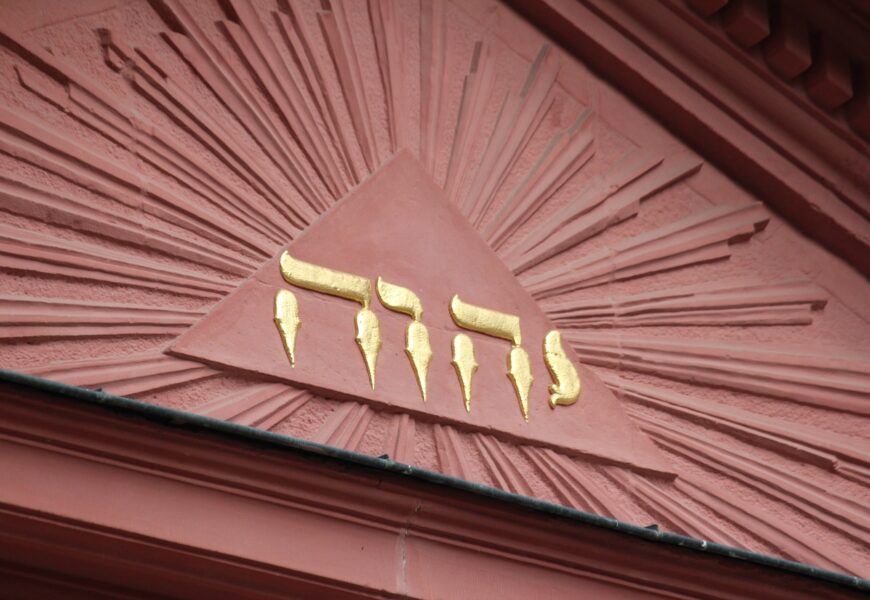Allah Almighty and YHWH of the Bible have long been a subject of theological debate and analysis. Both figures represent the concept of the monotheistic God in Abrahamic faiths, yet some argue over whether they refer to the same divine being. This article seeks to explore the similarities and differences in how YHWH and Allah are perceived, while also addressing common misconceptions.
La Ilah ha Illallah—”There is no god but THE GOD (of Abraham)”—is the Islamic declaration of faith, often referred to as the Shahada. The use of “Allah” in place of the more general term “Ilah” (meaning ‘god’ or ‘deity’) is deliberate and significant in Islamic theology. “Allah” is not merely the Arabic word for ‘God’; it is a contraction of “Al-Ilah,” meaning “The God”—the one and only true deity. This mirrors the Hebrew use of “Elah” or “Elohim,” which similarly refer to God in the singular. The use of “Allah” emphasizes God’s oneness, rejecting any notion of polytheism or multiple deities, aligning closely with the core tenet of Tawhid (the belief in the absolute oneness of God) in Islam. In this way, both in the Quran and the theological expressions of Muslims, “Allah” serves to distinguish the one, supreme, and indivisible nature of God from any other possible deities or idols.
YHWH: The Meaning Behind the Name
In the Bible, the term “YHWH” (often rendered as “Yahweh” or “Jehovah”) is the personal and sacred name of God revealed in the Hebrew Scriptures. It is derived from the Hebrew verb hayah (היה), meaning “to be.” In Exodus 3:14, when Moses asks God for His name, God replies, “I AM WHO I AM” (Ehyeh Asher Ehyeh), expressing God’s eternal, self-existent nature. Immediately after, God identifies Himself as “YHWH”, signifying “He is” — the One who was, is, and always will be. The name represents God’s unchanging, timeless essence, beyond all creation and limitation.
Yah: The Shortened Form of God’s Name
“Yah” (יָהּ) is a poetic and abbreviated form of YHWH, often used in worship and praise, especially in the Psalms. This name appears most recognizably in the word “Hallelujah” (הַלְלוּיָהּ), which literally means “Praise Yah” or “Praise the Lord.” It reflects deep reverence and devotion, capturing the essence of worship in a single, powerful phrase.
Hallelujah and Alhamdulillah: A Spiritual Parallel
Interestingly, the Hebrew “Hallelujah” and the Arabic “Alhamdulillah” (ٱلْـحَـمْـدُ للهِ) bear a remarkable spiritual and linguistic resemblance. Both are expressions of praise and gratitude directed solely to God:
- Hallelujah = Praise Yah (the Lord)
- Alhamdulillah = All praise is due to Allah (God)
Though they arise from different languages and religious traditions — Hebrew and Arabic, Judaism/Christianity and Islam — both phrases reflect the same core monotheistic belief: that God alone is worthy of all praise and thanks. These phrases have been used for centuries by worshippers across the world, resonating with a shared reverence for the Divine.
Parallels in Arabic: “Ya Huwah” and the Concept of the Eternal God
Interestingly, this concept finds a linguistic and spiritual parallel in Arabic. The phrase “Ya Huwah” can be understood as “O He”, invoking the presence of an unseen yet ever-present God. Much like “Yah” in Hebrew, this form reflects the mystery and majesty of a divine being who transcends names and descriptions.
In Islam, Allah is described in similar terms — as eternal, absolute, and incomparable. For instance, in Surah Al-Ikhlas (Quran 112:1–4), it is stated:
“Say, ‘He is Allah, [who is] One,
Allah, the Eternal Refuge.
He neither begets nor is born,
Nor is there to Him any equivalent.’”
This Quranic passage echoes the biblical revelation of YHWH, affirming that God is One, beyond time, creation, or human likeness. Both traditions emphasize that God is self-existent, not created, and not dependent on anything.
Together, these linguistic and theological parallels — “YHWH,” “Yah,” “Ya Huwah,” and “Allah” — reflect a shared monotheistic vision: that there is one God who always was, always is, and always will be, worthy of all praise and worship.tanding of God as YHWH—self-sufficient, eternal, and singular in essence.
Debunking the Myth: Allah as the “Moon God”
One of the most persistent misconceptions propagated by some anti-Islamic critics is the claim that Allah was originally a “moon god” worshipped in pre-Islamic Arabia. This claim is based on the fact that pre-Islamic Arabians worshipped various deities, and the moon was an important symbol in their astral religion.
However, this claim is unfounded and contradicts the actual beliefs of pre-Islamic Arabia. The moon god in Arabian mythology was known as “Hubal,” a deity associated with the Kaaba in Mecca. Hubal was a pagan idol worshipped by polytheistic Arabs, but it had no connection to Allah. In fact, Islam vehemently rejects any form of idol worship, including the worship of celestial bodies like the moon or the sun. The Quran explicitly commands not to worship the moon or the sun:
“And of His signs are the night and the day and the sun and the moon. Do not prostrate to the sun or to the moon, but prostrate to Allah, who created them, if it should be Him you worship.”
— Surah Fussilat (41:37)
This verse categorically refutes the claim that Allah is the moon god, as it calls for the worship of the Creator of the celestial bodies, not the bodies themselves. Islam’s strict monotheism emphasizes that Allah is the Creator of all things, including the sun and the moon.
Allah: The Universal Word for God
Another important point to consider is that “Allah” is not an exclusive name used only by Muslims. The word “Allah” is simply the Arabic term for “God,” used by Arabic-speaking Christians and Jews as well. In fact, in Aramaic—the language spoken by Jesus—”Allah” or “Elah” was used to refer to God. The famous cry of Jesus on the cross, as recorded in the Gospels, was:
“Eloi, Eloi, lama sabachthani?”
— Mark 15:34
This phrase translates to “My God, My God, why have you forsaken me?” In this context, “Eloi” or “Elahi” is a form of the word “Allah,” showing that even in Jesus’ time, the word for God was strikingly similar to the Arabic “Allah.” This further demonstrates that the concept of Allah as the one God is not exclusive to Islam but is shared across the Abrahamic faiths.
Parallels Between the Quran and the Bible
When comparing the teachings of the Quran and the Bible, several verses align in their core doctrines, especially regarding the nature of God. Both scriptures uphold the belief in a singular, all-powerful, and merciful God who is the Creator of everything.
In the Bible, God is described as merciful and compassionate:
“The Lord is compassionate and gracious, slow to anger, abounding in love.”
— Psalm 103:8
Similarly, in the Quran, Allah is described as:
“Indeed, Allah is most compassionate and most merciful to humanity.”
— Surah Al-Baqarah (2:143)
Both descriptions emphasize the divine attributes of mercy and compassion. Moreover, both scriptures highlight the eternal and unchanging nature of God. In Malachi 3:6, the Bible says:
“I the Lord do not change. So you, the descendants of Jacob, are not destroyed.”
This is echoed in the Quran:
“Only your Lord Himself, full of Majesty and Honour, will remain ˹forever˺.”
— Surah Ar-Rahman (55:27)
These verses reinforce the belief in a God who is constant and unchanging, qualities central to both YHWH and Allah.
Islam’s Alignment with Biblical Teachings
The Quran often calls for a return to the original teachings of the prophets, many of whom are shared between Islam and the Bible, such as Moses, Abraham, and Jesus. The Quran emphasizes that the message of Islam is not a new one but a continuation and completion of the monotheistic teachings found in earlier revelations:
“We surely sent a messenger to every community, saying, ‘Worship Allah and shun false gods.'”
— Surah An-Nahl (16:36)
In this way, Islam positions itself as a reaffirmation of the monotheism preached by the prophets of the Bible. The Quran’s teachings about the Oneness of God are strikingly similar to the first of the Ten Commandments given in the Bible:
“You shall have no other gods before me.”
— Exodus 20:3
This commandment is at the heart of both Biblical and Islamic theology, highlighting the shared belief in the Oneness of God.
Conclusion: The Same God in Different Expressions?
In conclusion, the God of the Bible, referred to as YHWH, and the God of the Quran, referred to as Allah, are conceptually aligned in significant ways. Both represent the monotheistic, eternal, and merciful Creator of the universe. While theological nuances and religious practices differ between Judaism, Christianity, and Islam, the core belief in one God remains a unifying principle across these faiths.
The misconceptions that Allah was a moon god or that YHWH and Allah represent different deities are rooted in misunderstanding. A careful examination of the scriptures and linguistic history reveals that the divine being worshipped in both traditions is fundamentally the same—an all-powerful, transcendent Creator, whether called YHWH or Allah.
For a deeper exploration of how Hebrew concepts and language appear within the Quran, read:
👉 How Allah Utilizes Hebrew in the Quran.
This article highlights cross-linguistic connections that further support the idea of a shared monotheistic tradition — one that speaks to the unity of divine truth across languages and revelations.



What you’ve written here is an invitation — to pause, reflect, and appreciate the deeper currents beneath the surface.